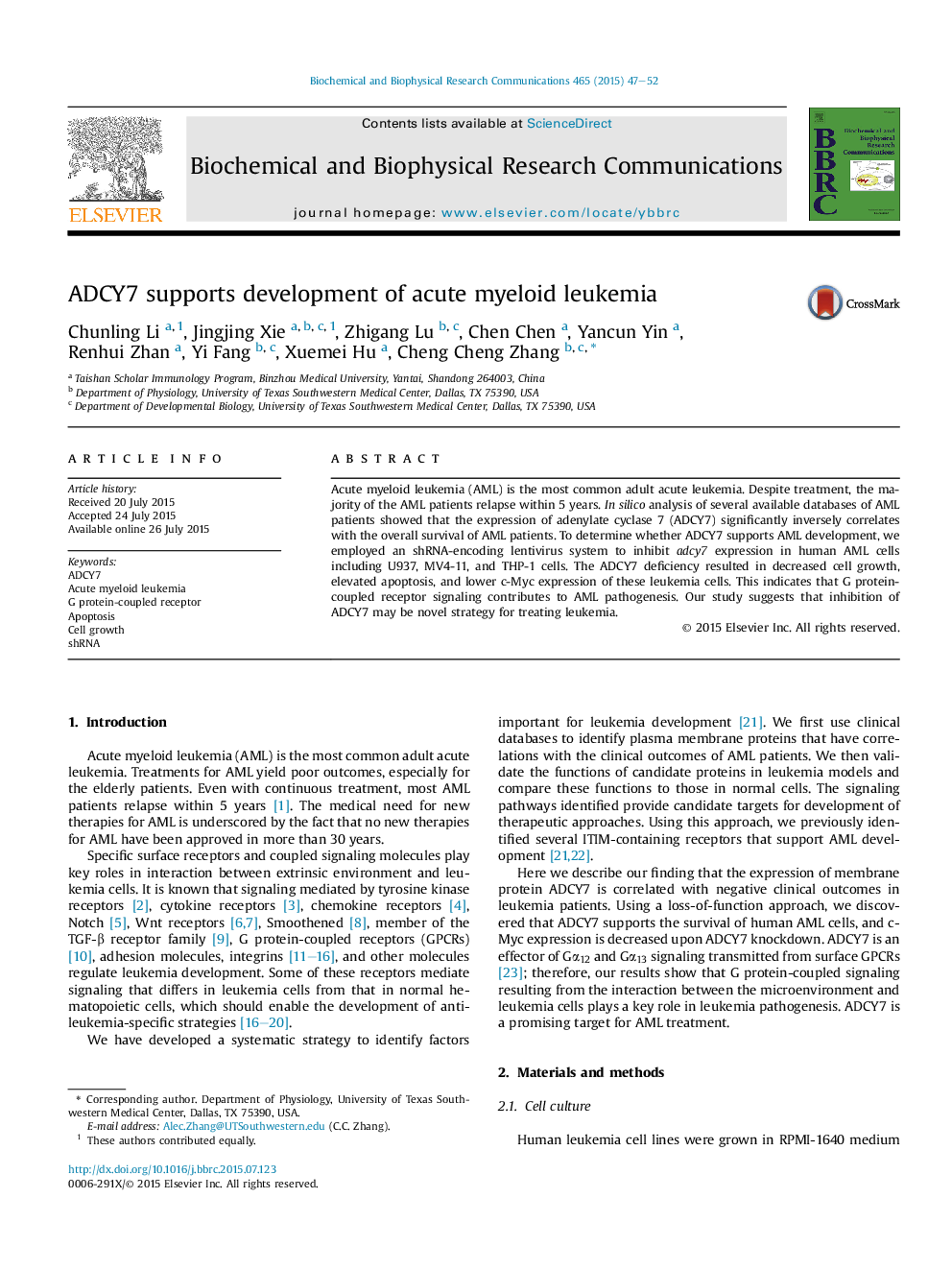| Article ID | Journal | Published Year | Pages | File Type |
|---|---|---|---|---|
| 1928116 | Biochemical and Biophysical Research Communications | 2015 | 6 Pages |
Abstract
Acute myeloid leukemia (AML) is the most common adult acute leukemia. Despite treatment, the majority of the AML patients relapse within 5 years. In silico analysis of several available databases of AML patients showed that the expression of adenylate cyclase 7 (ADCY7) significantly inversely correlates with the overall survival of AML patients. To determine whether ADCY7 supports AML development, we employed an shRNA-encoding lentivirus system to inhibit adcy7 expression in human AML cells including U937, MV4-11, and THP-1Â cells. The ADCY7 deficiency resulted in decreased cell growth, elevated apoptosis, and lower c-Myc expression of these leukemia cells. This indicates that G protein-coupled receptor signaling contributes to AML pathogenesis. Our study suggests that inhibition of ADCY7 may be novel strategy for treating leukemia.
Related Topics
Life Sciences
Biochemistry, Genetics and Molecular Biology
Biochemistry
Authors
Chunling Li, Jingjing Xie, Zhigang Lu, Chen Chen, Yancun Yin, Renhui Zhan, Yi Fang, Xuemei Hu, Cheng Cheng Zhang,
